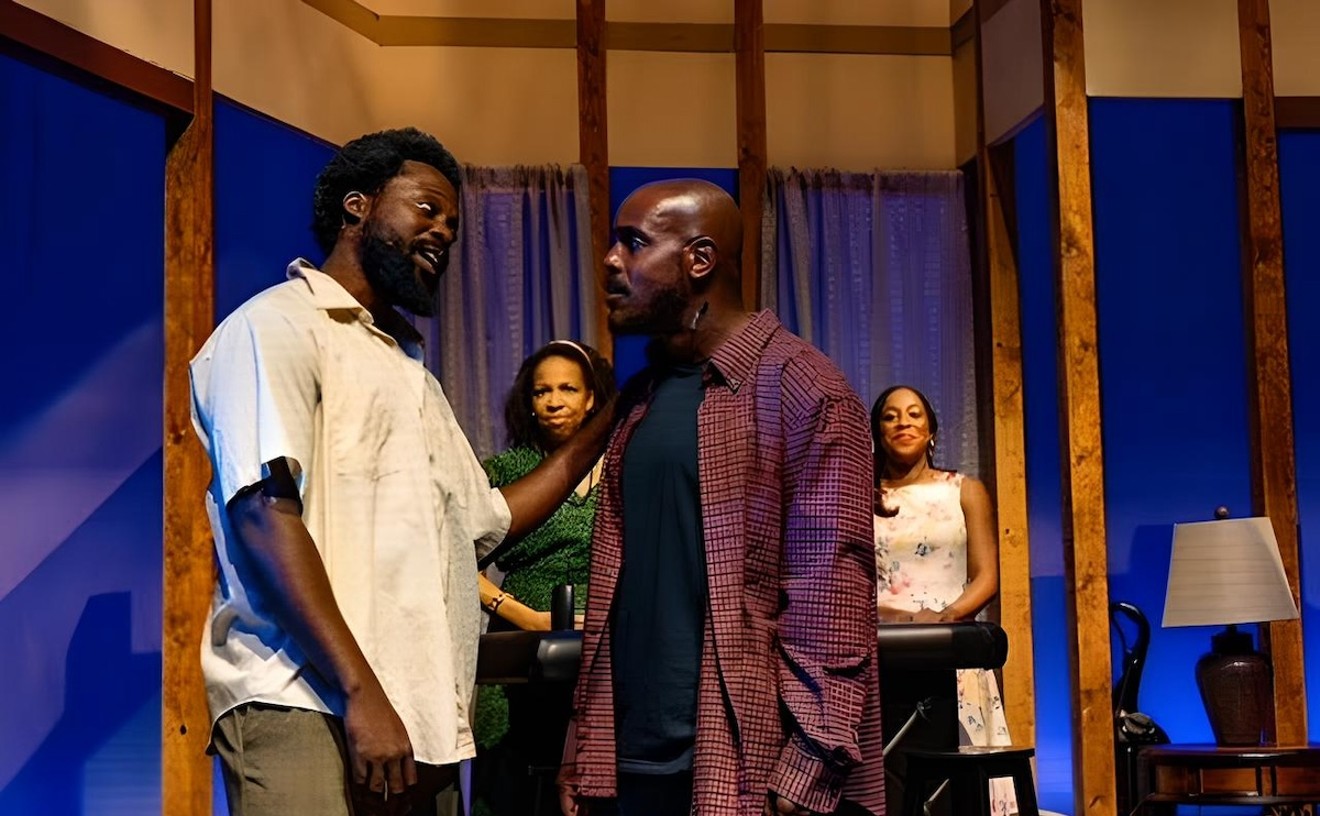The Life is a sort of musical Lower Depths, a multiplotted look at the denizens of the Times Square district in the bad old 1980s, before the area got Disneyfied. Back in the day, Eighth Avenue and 42nd Street was a churning cauldron of low-life action, a mix of hookers, hustlers, dealers, and con men, all preying on and preyed upon by the upright society that flowed around and through it, like a parallel universe. One story from this naked city concerns Queen, a soulful singer from Savannah who has hit hard times in Manhattan. To make ends meet, she begins hooking, but her earnings are always snorted away by her boyfriend, Fleetwood, a drug-addicted Vietnam vet who has become her pimp. Trouble arrives in the person of wide-eyed Mary, a Minnesota cutie who steps off a Greyhound at the Port Authority and into the clutches of Fleetwood, who plans to pimp her too. Queen is furious at Fleetwood and seeks help from an even bigger pimp, Memphis, who promptly ensnares her into servitude. While Mary finds her way into porno stardom, Queen desperately tries to flee "the life," the world of sex for sale that's really a living death.
The Life began as a concept that songwriter/lyricist Ira Gasman pitched to master tunesmith Cy Coleman. Coleman is a Broadway legend, a multiple Tony, Emmy, and Grammy winner whose résumé reads like a laundry list of Broadway hits -- Sweet Charity, Barnum, and City of Angels among them. Coleman's rich melodies span an array of styles, from snazzy Broadway numbers to soul, gospel, and funk, aided and abetted by Gasman's witty, pointed lyrics. It's easy to see why this tale of marginal dreamers would appeal to Coleman -- his body of work is full of heartache and aspiration, centering on American dreams, illusions, and rude awakenings. The show began modestly at the off-off-Broadway Westbeth Theatre, then moved uptown to Broadway, where it received critical acclaim, multiple Tony Awards, and a run from 1997 to 1998.
At the Atlantis, the show goes back to its low-rent roots. The playhouse, coexisting in a nondescript strip mall with a Mexican eatery and a billiards emporium, is shoehorned into a long, narrow retail space, a 150-seat house with a wide walkway of a stage and a light grid with fewer instruments in the air than many hair salons. Still, sweet are the uses of adversity; in assaying this big musical, director/producer Waldman and company have pulled off something of a pocket miracle. Liabilities are turned into assets: Matthew Decker's set, a bar balanced by a graffiti-smeared brick wall, is decidedly low-rent, but it suits the story.
The Broadway company's cast of 21 is pared down to 13, but this makes the show less a spectacle and more a character study, which better suits the performance space. There's a range of skill and vocal effectiveness in the cast, but all bring a fierce commitment that's impossible to resist. As the imperiled Queen, Jeanne Lynn Gray is particularly effective, offering an intriguing combination of sultry appeal, wounded vulnerability, and an expressive singing voice. Her renditions of "I'm Leaving You" and "We Had a Dream" are memorable. Ben Bagby is also affecting as her prevaricating swain; Bagby and Gray make this sweet-and-sour relationship work. You can tell why Queen loves the man and why he's toxic for her. Other notables include Dean Swann, whose slick, sinewy turn as narrator/hustler Jojo adds a corrosive charm, and Carl Barber-Steele as the menacing Memphis. Barber-Steele starts off slowly, a preening clotheshorse who's a frightening predator when necessary. As Queen's best pal, Sonja, Nadeen Holloway has several show-stoppers, including "The Oldest Profession." The rest of the ensemble brings energy and character detail, helping to conjure a seedy society that's repellent yet compelling. With crisp, efficient staging from Waldman and his Fosse-influenced choreographer, Kevin Black, the result is a dynamic musical adventure that seethes with life, sex, despair, and hope.
This isn't a perfect show by any means. While the music and songs are superior, the weak, typical book by David Newman, Gasman, and Coleman is a decided drawback. These characters lack much true detail or the specificity of real lives lived. Another problem is that there are too many songs -- the first act alone has sixteen, several of which merely rehash things and stop the show's momentum cold. The production also has weaknesses. The orchestration, using recorded music and musical director Phil Hinton doing good service on piano and keyboards, must be low-cost by necessity, but the sound levels are so high that many of the lyrics are drowned out, despite the tiny theater space and the performers' body mikes. The several acts of violence in the show are amateurishly staged and cry out for a competent fight director.
Never mind, though, because this Life is a big, gutsy gamble for the tiny Atlantis and a one-of-a-kind chance for area playgoers to catch a fine show in a fine production. If audiences turn out for The Life, perhaps the Atlantis may find a new identity as a purveyor of neglected musical gems. They certainly have got one going on now. Oh, right, about Wayne Gretzky? The Hall of Fame hockey great is credited with a wise epigram we all should keep in mind: "You miss 100 percent of the shots you don't take."










